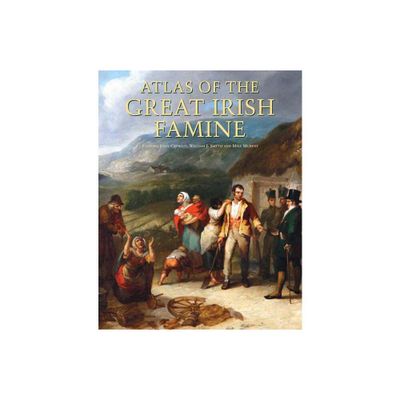Home
Human Encumbrances: Political Violence and the Great Irish Famine
Loading Inventory...
Barnes and Noble
Human Encumbrances: Political Violence and the Great Irish Famine
Current price: $38.00


Barnes and Noble
Human Encumbrances: Political Violence and the Great Irish Famine
Current price: $38.00
Loading Inventory...
Size: OS
*Product Information may vary - to confirm product availability, pricing, and additional information please contact Barnes and Noble
The history of the Great Irish Famine has been mired in debate over the level of culpability of the British government. Most scholars reject the extreme nationalist charge of genocide, but beyond that there is little consensus. In
Human Encumbrances: Political Violence and the Great Irish Famine
, David Nally argues for a nuanced understanding of “famineogenic behavior”—conduct that aids and abets famine—capable of drawing distinctions between the consequences of political indifference and policies that promote reckless conduct.
Human Encumbrances
is the first major work to apply the critical perspectives of famine theory and postcolonial studies to the causes and history of the Great Famine. Combining an impressive range of archival sources, including contemporary critiques of British famine policy, Nally argues that land confiscations and plantation schemes paved the way for the reordering of Irish political, social, and economic space. According to Nally, these colonial policies undermined rural livelihoods and made Irish society more vulnerable to catastrophic food crises. He traces how colonial ideologies generated negative evaluations of Irish destitution and attenuated calls to implement traditional anti-famine programs. The government's failure to take action, born out of an indifference to the suffering of the Irish poor, amounted to an avoidable policy of “letting die.”
Human Encumbrances: Political Violence and the Great Irish Famine
, David Nally argues for a nuanced understanding of “famineogenic behavior”—conduct that aids and abets famine—capable of drawing distinctions between the consequences of political indifference and policies that promote reckless conduct.
Human Encumbrances
is the first major work to apply the critical perspectives of famine theory and postcolonial studies to the causes and history of the Great Famine. Combining an impressive range of archival sources, including contemporary critiques of British famine policy, Nally argues that land confiscations and plantation schemes paved the way for the reordering of Irish political, social, and economic space. According to Nally, these colonial policies undermined rural livelihoods and made Irish society more vulnerable to catastrophic food crises. He traces how colonial ideologies generated negative evaluations of Irish destitution and attenuated calls to implement traditional anti-famine programs. The government's failure to take action, born out of an indifference to the suffering of the Irish poor, amounted to an avoidable policy of “letting die.”

















